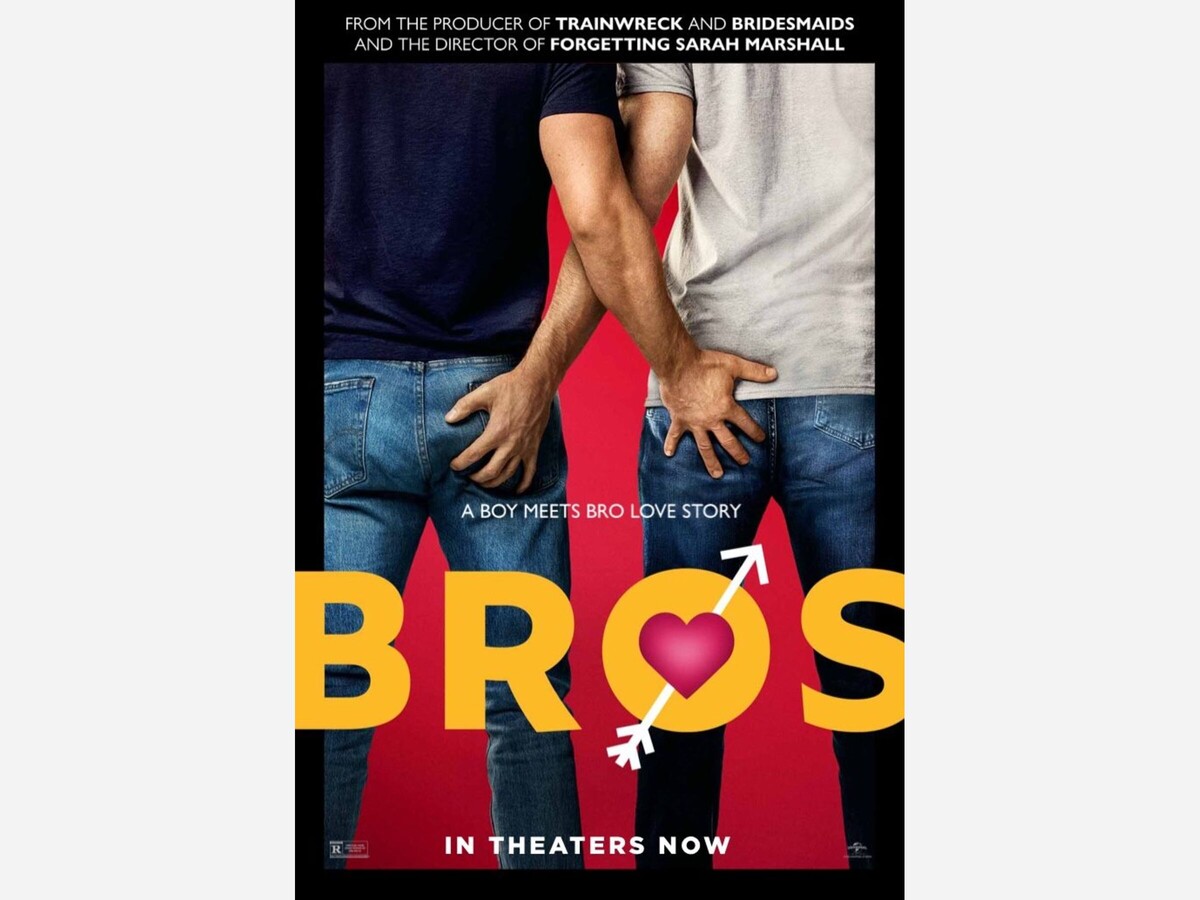Image

For those who are reading this and do not know, Bros is billed as the first gay rom-com released by a major studio. There was a contingent of the audience that expressed concern over the movie possibly being a run-of-the-mill romantic comedy that just takes the female character and changes the gender to male without modifying the script in a major way to accommodate that change. That is simply not the case in this movie and Bros becomes a shining example of the intricacies of what should go into a movie that boasts diverse casting.
Bros follows Bobby (Billy Eichner, also co-writer) as he has a crisis of confidence and falls in love with Aaron (Luke Macfarlane). The film also stars Jim Rash, Ts Madison, Ben Stiller, Kristin Chenowith, Monica Raymund, Guillermo Diaz, Bowen Yang, and Amy Schumer.
If there is anything to complain about with the movie, it would be the fact that some of the edits are not as clean as they could have been. There are points where the dialogue track is very obviously overlaid over multiple cuts of the same scene which leads to a strange visual for the sequence. Also, as a point of personal preference, there is a scene late in the movie where Bobby tells the story of where his confidence comes from and it is a great emotional sequence about coming to terms with identity that has multiple cut aways from him talking to Aaron’s reaction. The problem is, Aaron isn’t really reacting in a meaningful way so the sequence would have been better served just allowing Billy Eichner to deliver the monologue without cutting away.
The movie is great all around with great performances and a plot that does not feel stale or derivative so on every technical level it functions as expected. The best way to talk about this experience is to talk about its representation, specifically how it relates to conversations around race/gender/identity-bending characters. In this case, neither Bobby nor Aaron feel like the script was written to be a traditional male/female rom-com with one of the genders swapped. Both Bobby and Aaron have to deal with identity issues that tend to skew traditionally male and, had the movie been made with a female in either role, it would have felt like the screenwriter was a little green.
This comes back to the idea that characters are being swapped for the sake of being swapped. Because “white” and “straight” and “male” have been the sort of default for protagonists in movies and television, deviating from that into anything else feels weird for certain subsets of the population. That said, a lot of times when a movie is taken and flipped on that axis, it is easy to tell if it is designed to get headlines and attention or if it is done with the intent to take a story and change the prism through which it is told to bring new meaning to the material or the genre. Take a movie like The Roaring Twenties from 1939 with James Cagney and Humphrey Bogart; it is a fantastic look at the cycle of recidivism, how veterans are treated after they return from war, and the organized crime that inherently comes from a government that insists action in an unpopular way. There is an avenue to remake this movie set in the modern day with a different race cast and still have the movie work as well as it did in 1939, which reflects poorly on the state of society nearly 100 years later.
It is for this reason that the argument that the reverse could be done without any impact is in bad faith. The argument “what if we made Luke Cage/Black Panther/any other historically black character white?” invariably comes up in conversations like this but it totally misses the point. Race is inherent in the stories of these characters and these characters have been built with their race in mind so the two things are inexorably linked. With a few exceptions, most white characters do not have their white-ness, and most straight characters their straight-ness, so bound to their identity that it cannot be changed for the movie.
This is relevant because of the treatment this movie has been getting. There is a narrative that the critic consensus on aggregator sites like RottenTomatoes or Metacritic are inaccurate and not reflective of reality, with the finger being pointed squarely at the disparity between the critic score and the user scores. Much like Ms. Marvel, She-Hulk, Rings of Power, Obi-Wan Kenobi, Watchmen, Batwoman, Captain Marvel, Emergency, and Master, Bros has found itself as the target of a campaign to lower the audience score to the point that it creates that disparity. It’s a form of entertainment “astroturfing” (the act of fabricating a grassroots campaign to make it look like there is more support or substantially less support for something) where the sites taking steps to prevent that such as blocking reviews on things before release automatically look suspect to this subset of the audience.
All of that said, when making their decision on whether or not to see Bros a viewer should consider the fact that there is nothing about the movie that can be posed in the negative, besides the fact that the movie could have been a smidge shorter. If that’s the only complaint to be made, then that is a fantastic two hours spent at the cost of a movie ticket.
Final Rating: 9/10